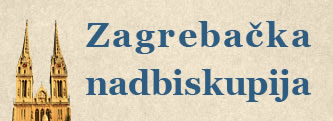
The Catholic Universities Partnership
The Catholic Universities Partnership
The Catholic Universities Partnership (CUP) operates within the framework of the Nanovic Institute for European Studies at the University of Notre Dame, Indiana. The objective is to re-establish Catholic universities in Europe which were closed under the pressure of communist regimes and assist in the opening of new Catholic universities in post-communist countries. Since 2005, the Partnership has been organising scientific-research conferences once a year in different European countries.
The first partners in this group of universities, called the Catholic Universities Partnership (CUP), included the John Paul II Catholic University of Lublin (Poland), the Catholic University of Ruzomberok (Slovakia), Pázmány Péter Catholic University (Hungary), and the Ukrainian Catholic University (Ukraine). In 2009, the group expanded to include new friends at the Universita Cattolica del Sacro Cuore (Milan) and the Institut Catholique de Paris. In 2013, it welcomed additional friends from the Catholic University of Croatia (Zagreb) and the Pontifical University of St. Thomas (Rome).
NANOVIC INSTITUTE FOR EUROPEAN STUDIES, USA
The Institute was created in 1992, first as a center for European studies which sponsored an annual conference and administered an undergraduate Minor. Following the expansion of its programs, it was designated an institute in 1997. The Institute’s second director, A. James McAdams, oversaw the development of the Institute’s first formal strategic plan in 2002. The goal of this plan was to use the Institute’s resources to provide greater intellectual coherence ot the educational experience of undergraduate and graduate students, integrate faculty research, and enhance the internal and external visibility of European studies at Notre Dame. McAdams also led the development of the Institute’s second strategic plan, which established the Institute’s ongoing presence in Notre Dame’s global gateways.
THE JOHN PAUL CATHOLIC UNIVERSITY OF LUBLIN, POLAND
The Catholic University of Lublin was founded in 1918. It is the oldest university in Lublin and one of the oldest in Poland. An event of remarkable importance was the election of Rev. Karol Wojtyła (since 1954 the head of the Chair of Ethics in the Department of Christian Philosophy at the Catholic University of Lublin) as Pope. A monument of John Paul II and Cardinal Stefan Wyszyński was placed in the university court-yard. On June 9, 1987 Pope John Paul II visited KUL. On 16th October 2005 during a ceremonial inauguration of academic year 2005-2006, KUL adopted the name of The John Paul II Catholic University of Lublin. At present KUL consists of ten faculties.
UKRAINIAN CATHOLIC UNIVERSITY, UKRAINE
On June 29, 2002, the ceremonial inauguration of the Ukrainian Catholic University (UCU) was held in Lviv, Ukraine. UCU is the first Catholic university to open on the territory of the former Soviet Union and also the first university opened by one of the Eastern Catholic churches. Today they have 2 faculties, 8 research institutes, 3 schools and other programs.
PÁZMÁNY PÉTER CATHOLIC UNIVERSITY, HUNGARY
University was founded in 1635 and has been continuously operating ever since. In 1993 the Hungarian Parliament registered Pázmány Péter Catholic University (PPCU)as a university accredited by the state. It currently has five faculties. PPCU forms a unique segment of the Hungarian higher education as a non-regional institution with national coverage and as the only single university of the Hungarian Catholic higher education, which is the member of an international research university network.
UNIVERSITY OF ZADAR, CROATIA
The original University of Zadar was founded by the Dominicans in 1396. It was the first institute of higher learning in the country and one of the oldest in Europe. The University of Zadar is now an entirely integrated university, consisting of 21 departments.
THE CATHOLIC UNIVERSITY IN RUŽOMBEROK, SLOVAKIA
It was after the Velvet Revolution in the year 1989 when possibilities arose for the creation of CU in Slovakia. The Slovak bishops endeavoured to form a Faculty of Pedagogy which would educate Catholic teachers. The Catholic University in Ružomberok today consists of four faculties with 7,700 students – 4,100 internal and 3,600 external – including 430 doctoral students.
SULKHAN SABA ORBELIANI TEACHING UNIVERSITY, GEORGIA
Sulkhan Saba Orbeliani Teaching University was founded by the catholic bishop in Georgia Giuseppe Pasotto in 2002. In 2009 the Institute obtained state accreditation and recived the status of a university. According to the University’s mission, its main goal is to create an ideal environment for cultural and intellectual development of students. Their mission is inspirited by Sulkhan Saba Orbeliani, a national figure, great creator and a person with deep and broad knowledge and European consciousness.
THE CATHOLIC UNIVERSITY OF CROATIA, CROATIA
The Catholic University of Croatia is one of the youngest Croatian universities which was established by the Decree on the Establishment of Catholic University of Croatia of Cardinal Josip Bozanić, archbishop and metropolitan of Zagreb on June 3, 2006. The Catholic identity is a cultural and ethical foundation on which the Catholic University of Croatia stands. Within this context, the Catholic identity at Catholic University of Croatia is shaped through the teaching and scientific research processes as well as all other activities at the University. It strives to become the academic community which recruits researchers who represent different fields of human knowledge and the academic institution in which Catholicism is actively present. The Catholic University of Croatia provides undergraduate studies in history, psychology, sociology, communication sciences and nursing as well as graduate studies in history, psychology, sociology and nursing.
ORGANIZERS
Nanovic Institute for European Studies,
University of Notre Dame, USA
Catholic University of Croatia, Croatia

Conference Guide
Conference Guide & Abstract Booklet is available. Click to download as a PDF.





